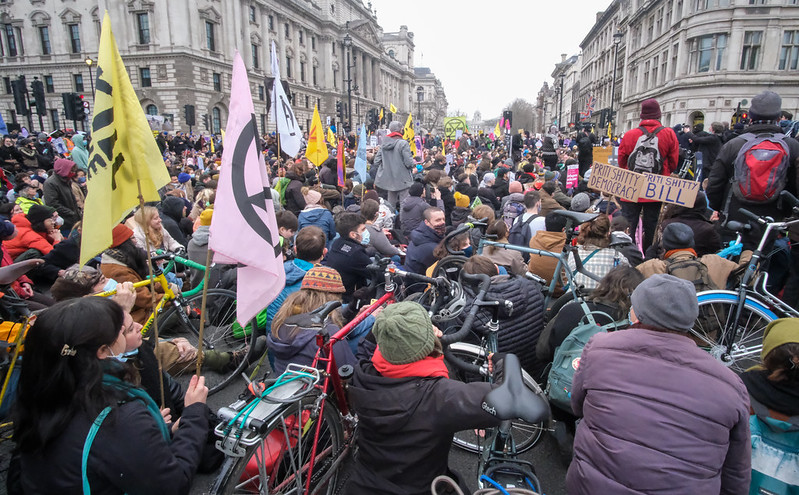
Photograph by Alisdare Hickson
The UK’s controversial Police, Crime, Sentencing and Courts Act 2022 received royal assent to become UK law despite widespread criticism.
The bill has been criticised for its ability to impose extra conditions on the rights of assembly and protest.
The new law gives UK police the power to attach conditions, such as imposing start and finish times and setting noise limits, to protests. It also includes an offence of "intentionally or recklessly causing public nuisance” which is intended to ban people from occupying public spaces.
Reacting to the bill, Sacha Deshmukh, CEO of Amnesty International said:
“This is a dark day for civil liberties in the UK. This deeply-authoritarian Bill places profound and significant restrictions on the basic right to peacefully protest and will have a severely detrimental impact on the ability of ordinary people to make their concerns heard.”
“This Bill also persecutes traveller communities and will further entrench racism and discrimination in British policing through its huge expansion of stop-and-search powers,” he added.
Concerns have also been raised about the disproportionate impact the bill will have on marginalised communities in the UK.
In a press release, Human Rights Watch highlighted that the new Bill “strengthens police powers to crack down on ‘unauthorised encampment’ which risks exacerbating discrimination against Traveller, Roma, and Gypsy people.”
Labour MP Apsana Begum said the bill “also threatens the way of life for Gypsy, Roma and Traveller communities, through greater police powers targeting them. Likewise, despite the rhetoric, all evidence indicates that it is not likely that the Bill will even cut crime and make those that are not being targeted in the Bill safer.“
Earlier this year, more than 350 Psychiatrists and Psychologists signed an open letter expressing concerns regarding the impact the Bill will have on the mental health of young people.
“We cannot think of better measures to disempower and socially isolate young people who are already suffering the devastating mental health consequences of disrupted education and prohibited social contact imposed by the pandemic.”
Despite the widespread opposition, the UK government pushed through the legislation and has now become UK law.
According to a government press release, the Bill claims to equip “the police with the powers and tools they need to combat crime and create safer communities, while overhauling sentencing laws to keep serious sexual and violent offenders behind bars for longer.”
